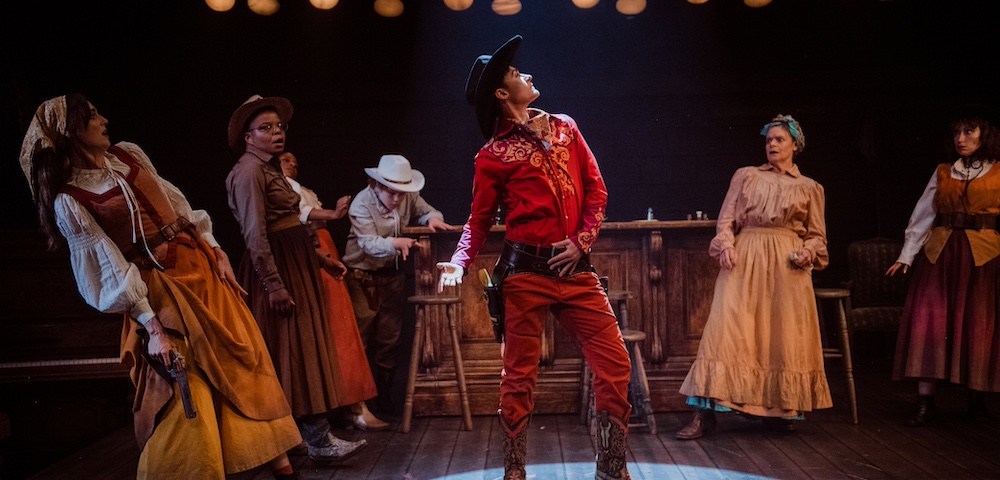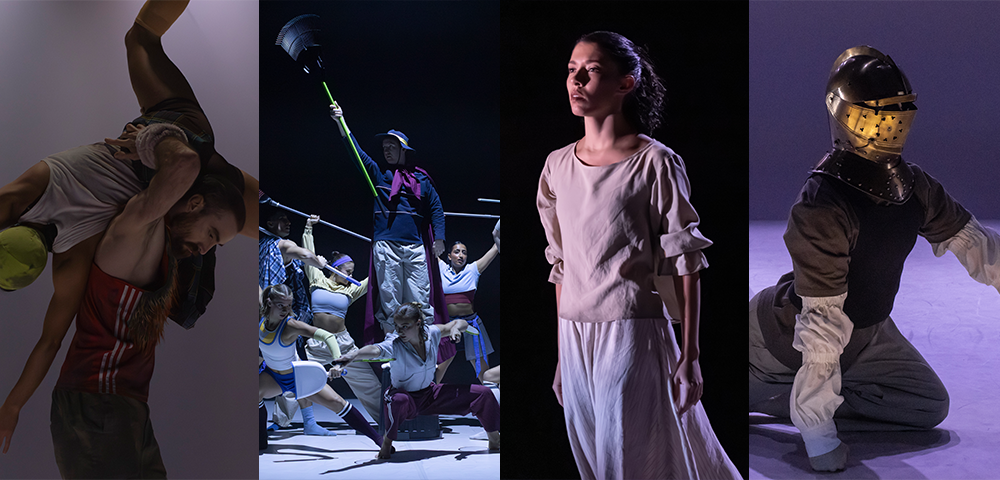
‘Sing Sing’ Is A Beautiful And Deeply Human Prison Drama
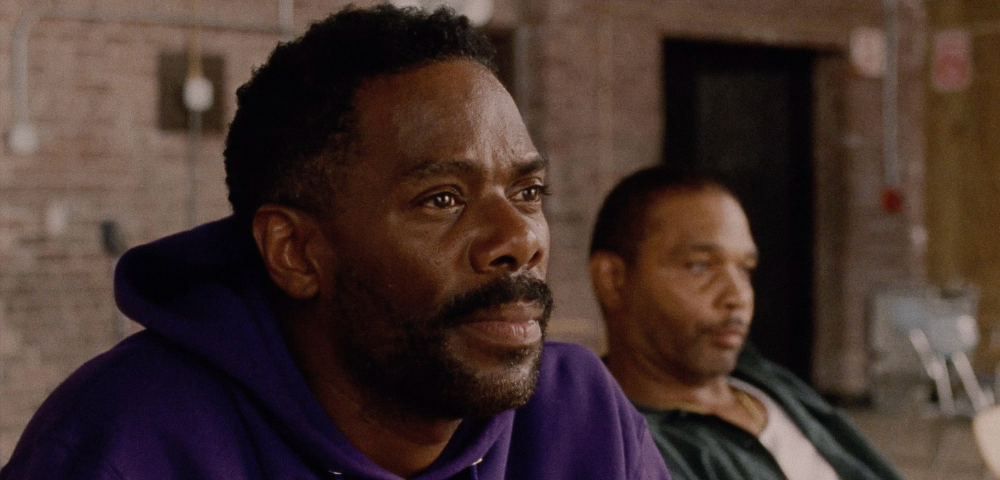
It’s a beautiful fact of life that no matter what circumstances people find themselves in, people want to create art. In that act of creation, the soul is both challenged and calmed by the ability to play and collaborate, and share that joy with the world. Greg Kwedar’s Sing Sing, a stirring, deeply human masterpiece, shows us how the power of art can brighten our lives in even the most hopeless situations.
Divine G (Colman Domingo) is an inmate wrongfully imprisoned at Sing Sing, a maximum security prison in New York, who finds purpose in his life through a theatre group in the prison funded by an arts rehabilitation program. When a newcomer known as Divine Eye (Clarence Maclin) enters the group as they begin a new production, the men of the group discover more about themselves and their emotions through the power of theatre.
Inspired by a number of real stories, a key element of Sing Sing is the fact that bar Colman Domingo, Paul Raci and Sean San José, all the other actors in the film are previously incarcerated inmates who have been through the acting rehabilitation programs at Sing Sing playing themselves.
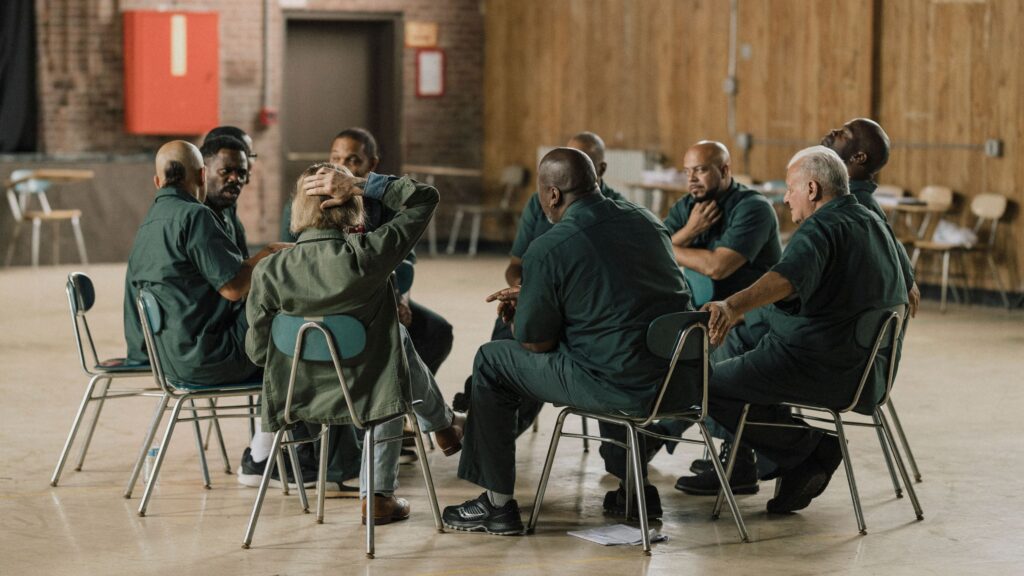
Sing Sing feels extremely real
This element imbues the entire film with a sense of truth that is refreshing and beautiful. When actors like Sean ‘Dino’ Johnson deliver monologues about seeing horrible things in prison that makes them realise they need to rehabilitate absolutely gut-wrenching. Each of them – David ‘Dap’ Giraudy, Patrick “Preme” Griffin, Jon-Adrian “JJ” Velazquez, among others – are all extremely talented performers with real emotional sensitivity.
The film shares a lot with documentary filmmaking, feeling real in a way that few narrative films do. It’s shot and directed with real sensitivity – Kwedar and cinematographer Pat Scola imbue the film with a real intimacy that makes the theatre group feel like a refuge.
The filmmaking approach operates in a profound way, telling a deeply humanistic story about the American prison system and finding hope in it despite crushing circumstances. Watching this group of men slowly become more vulnerable with one another and bond as they accept the beauty of acting is nothing short of wonderful.
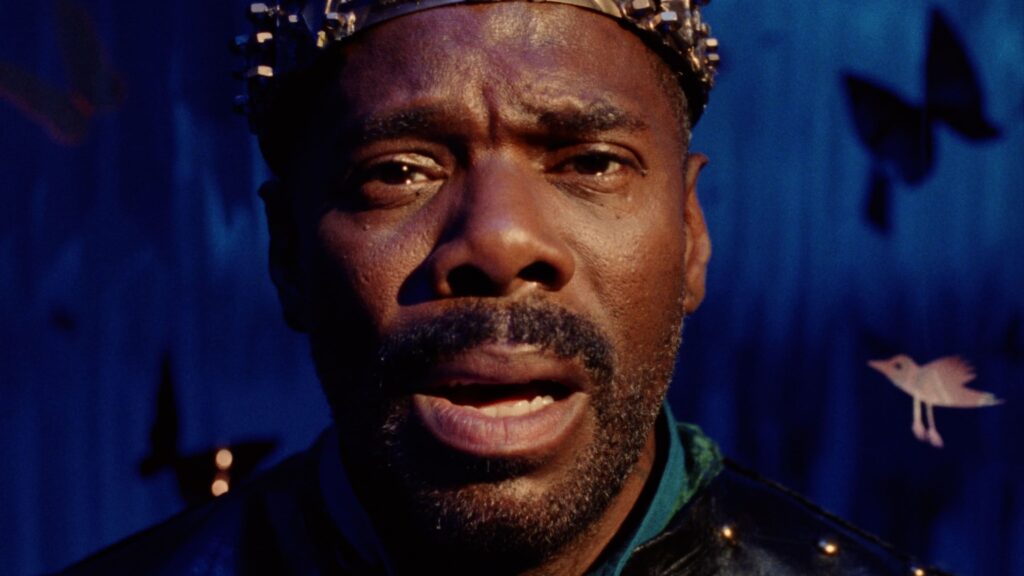
Colman Domingo and Clarence Maclin are both divine
Though the entire cast of the film is amazing, the film is anchored by the burgeoning friendship between Divine G and Divine Eye, both played remarkably by Colman Domingo and Clarence Maclin.
Colman Domingo has consistently given stellar performances in everything since his irresistibly charismatic turn in Euphoria, but I think this film is his greatest achievement yet. Divine G believes in the power of theatre to transform the lives of those performing it, investing hours upon hours of time to help his fellow men discover themselves.
Yet he’s still clearly a man battered by the cruelty of American “justice”, fighting to prove himself innocent of a crime he didn’t commit; there’s a deep sadness within him that is heartbreaking when fully revealed. Domingo portrays each element of Divine G flawlessly in a sincerely stunning performance that’s sure to move you.
Meanwhile, Clarence ‘Divine Eye’ Maclin portrays a younger version of himself in the film with a story that’s somewhat of an inversion of Divine G’s. Though interested in the program, Eye is skeptical of the value of drama, while G wants to push himself further and further. They butt heads early on in disagreement about the genre of the group’s next play, as well as their difference in acting styles.
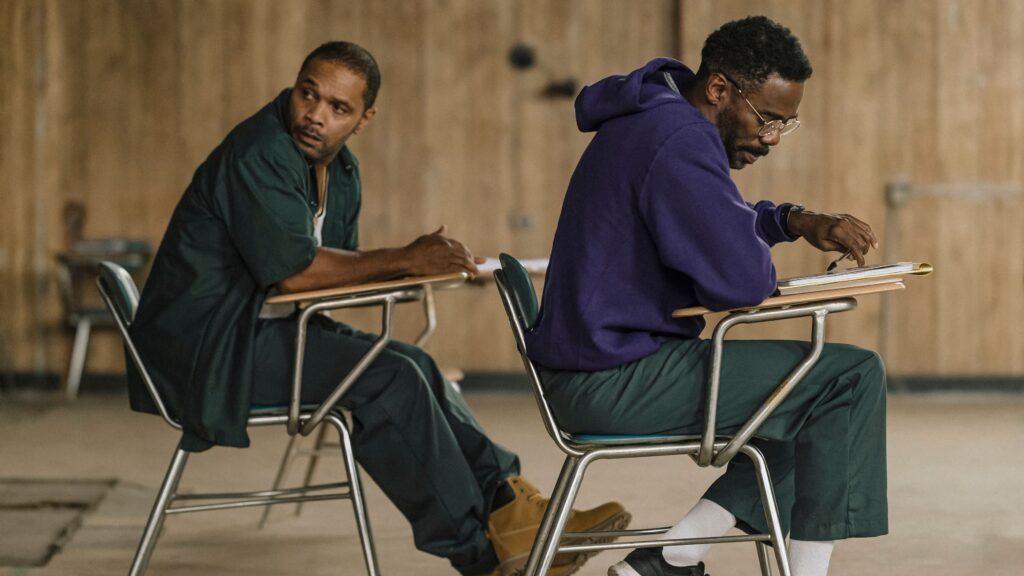
A heartwarming tale of male friendship and love
Yet as the film goes on, as the group of men grow closer to one another and unexpected tragedies strike, the two develop a sincerely powerful friendship. Maclin is, frankly, remarkable throughout the film. He begins presumably as he was in real life – a man hardened by a life of crime and the system that punishes it.
But as he begins to open up to performance and acting, Divine Eye changes in extremely subtle ways. He becomes more open and available to his fellow men, less self-conscious in himself when acting. It’s difficult to believe it’s Maclin’s first feature film role, but it’s simply remarkable to watch him work. Thanks to Domingo and Maclin, when G and Eye become true friends, it not only feels earned; it feels real.
It’s that sense of reality that makes Sing Sing such a special film. Kwedar’s film is deeply human in a way that’s all too rare, and its take on positive masculinity is stirringly beautiful. It’ll make you laugh and cry, and don’t be surprised at all if it fills you with the desire to create.
★★★★★
Sing Sing is in cinemas now.






